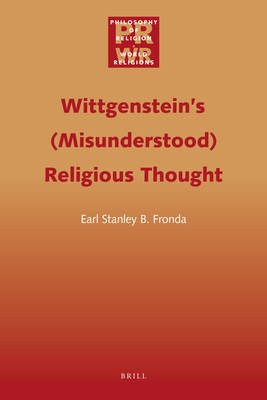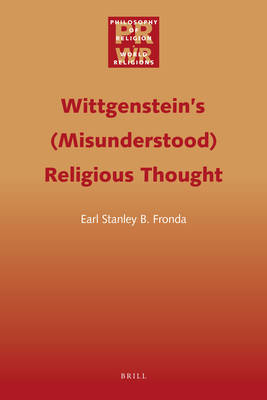
Je cadeautjes zeker op tijd in huis hebben voor de feestdagen? Kom langs in onze winkels en vind het perfecte geschenk!
- Afhalen na 1 uur in een winkel met voorraad
- Gratis thuislevering in België vanaf € 30
- Ruim aanbod met 7 miljoen producten
Je cadeautjes zeker op tijd in huis hebben voor de feestdagen? Kom langs in onze winkels en vind het perfecte geschenk!
- Afhalen na 1 uur in een winkel met voorraad
- Gratis thuislevering in België vanaf € 30
- Ruim aanbod met 7 miljoen producten
Zoeken
Omschrijving
Wittgenstein's religious thought is not well understood. And Wittgensteinian philosophy of religion is charged with fideism, religious non-realism, and even crypto-atheism. These charges, however, are borne of misunderstandings that are a result of the critics' being oblivious of apophatic theology. This book is intended to help clear some of those misunderstandings and neutralize the above-mentioned charges. It argues that Wittgenstein's religious thought shares kinship with the thought of apophaticists in Christendom such as the Pseudo-Dionysius and St. Thomas Aquinas. What appear to be fideism, non-realism, or crypto-atheism to the critics appear differently to those who see Wittgensteinian philosophy of religion from the apophaticists' point of view--Wittgenstein's religious point of view.
Specificaties
Betrokkenen
- Auteur(s):
- Uitgeverij:
Inhoud
- Aantal bladzijden:
- 264
- Taal:
- Engels
- Reeks:
- Reeksnummer:
- nr. 1
Eigenschappen
- Productcode (EAN):
- 9789004186095
- Verschijningsdatum:
- 13/08/2010
- Uitvoering:
- Hardcover
- Formaat:
- Genaaid
- Afmetingen:
- 163 mm x 241 mm
- Gewicht:
- 517 g

Alleen bij Standaard Boekhandel
+ 485 punten op je klantenkaart van Standaard Boekhandel
Beoordelingen
We publiceren alleen reviews die voldoen aan de voorwaarden voor reviews. Bekijk onze voorwaarden voor reviews.









